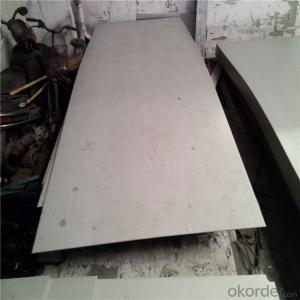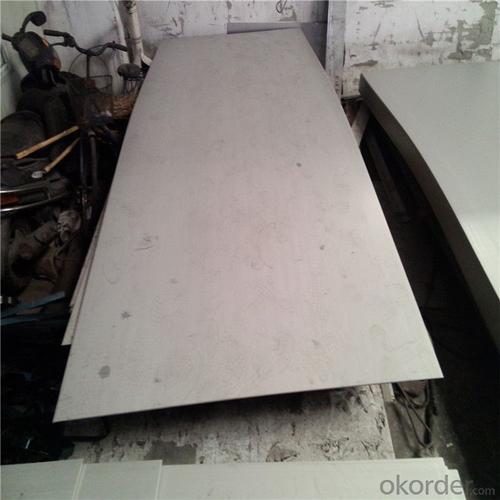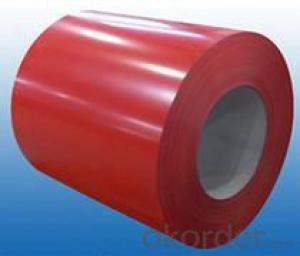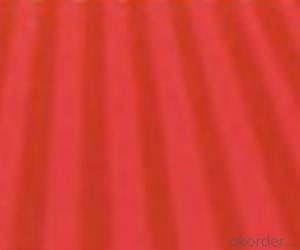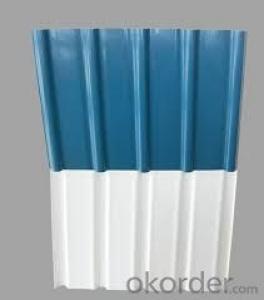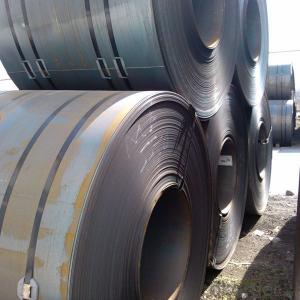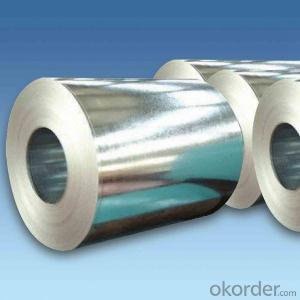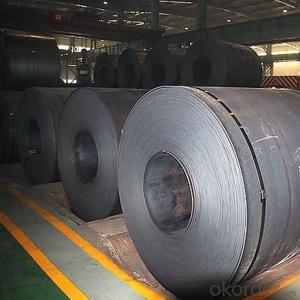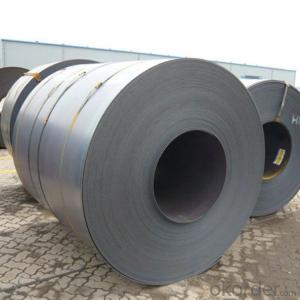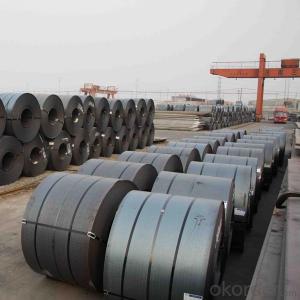Hot Rolled Steel Plate SS400 Thickness 5.0MM
- Loading Port:
- Tianjin
- Payment Terms:
- TT OR LC
- Min Order Qty:
- 500 m.t.
- Supply Capability:
- 10000 m.t./month
OKorder Service Pledge
OKorder Financial Service
You Might Also Like
Specification
DESCRIPTION:
GRADE: SS400, ASTM A36, A572, ST37,ST52, Q195, Q215, Q235,Q345, S235JR etc.
STANDARD: GB/T709-2006, ASTM A36, JIS G3101, DIN EN 10025, SAE 1045, ASTM A570
SPEC: 1)Width: 600-2500mm or 1000,1050,1250,1500,1800,2000mm
2)Thickness:1.5mm-200mm or as customers’ special requirements;
3)Length: 2-12m or as customers’ special requirements
FEATURES OF STEEL COILS
(1)Good ductility
(2)Good corrosion resistance
(3)Excellent abrasion resistance and fatigue strength
(4)Good weldability
(5)Oxidation resistant performance
(6)Excellent in high temperature
DETAILED PICTURES FOR STEEL COILS
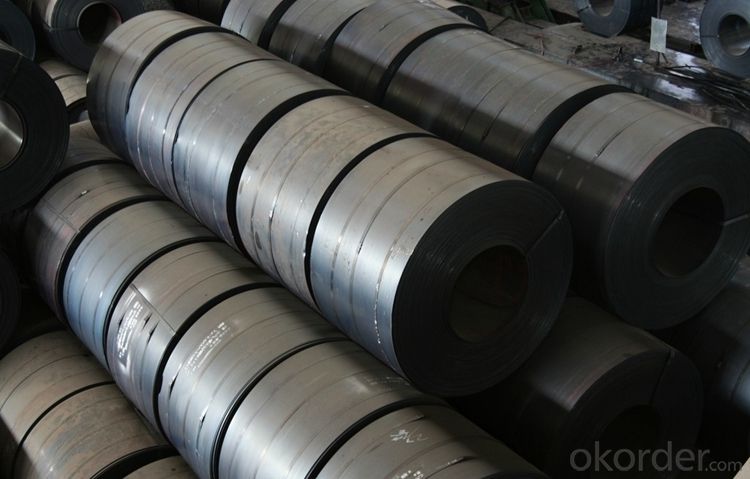
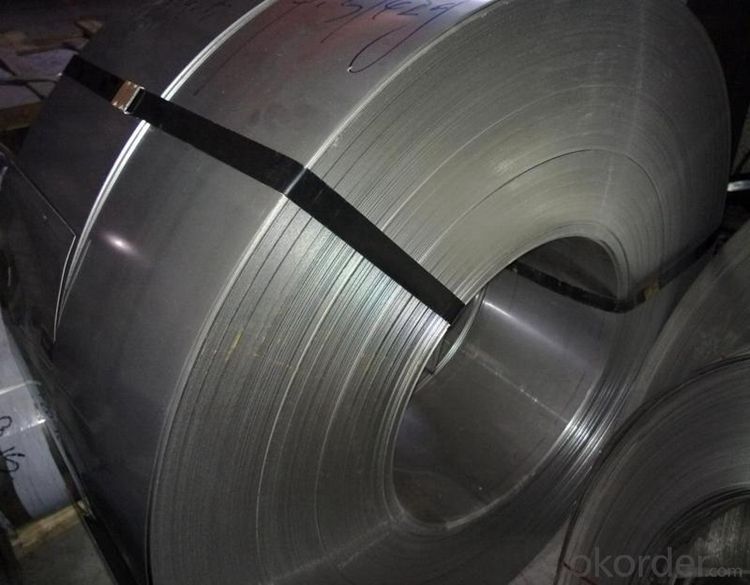
FAQ:
Q:Do you have OEM service?
A: Yes.Variety of products size,quality and quantity can be customized according to your need.
Q:Could you support free sample?
A:Yes.We can supply FREE samples.But the delivery charges will be covered by our customers.
Q:How about the delivery time?
A:Within 15-30days after receiving the deposit or L/C at sight.
- Q: Can steel sheets be used in marine applications?
- Steel sheets are suitable for marine applications, as they possess high strength and durability. This material is widely chosen due to its ability to endure the challenging conditions of saltwater, as well as its resistance to corrosion. In the construction of ships, offshore platforms, and other marine structures, steel sheets are frequently employed to ensure structural integrity. They can be easily customized to meet specific design requirements. Moreover, to enhance their corrosion resistance in saltwater environments, steel sheets can be coated with protective layers like anti-corrosion paints or galvanization. Overall, steel sheets are a dependable and frequently utilized material across various marine applications.
- Q: Can steel sheets be used in food processing or pharmaceutical industries?
- Yes, steel sheets can be used in food processing and pharmaceutical industries. Stainless steel sheets are commonly used in these industries due to their excellent corrosion resistance, durability, and hygienic properties. Stainless steel is non-reactive and does not leach any harmful substances into the food or pharmaceutical products. It is also easy to clean and maintain, making it suitable for applications where high levels of cleanliness and hygiene are required. Additionally, stainless steel sheets can withstand extreme temperatures and are resistant to impact and abrasion, making them ideal for use in food processing and pharmaceutical industries where strict quality and safety standards are essential.
- Q: What are the load-bearing capacities of steel sheets?
- The load-bearing capacities of steel sheets can vary depending on factors such as the thickness, grade, and type of steel used. Generally, steel sheets can have high load-bearing capacities due to their inherent strength and durability. However, it is crucial to consult engineering specifications and professional advice to determine the precise load-bearing capacity for specific steel sheets in different applications.
- Q: What are the different methods of surface preparation for steel sheets?
- Some of the different methods of surface preparation for steel sheets include sandblasting, chemical cleaning, mechanical cleaning, and power tool cleaning.
- Q: Can steel sheets be used for making furniture?
- Yes, steel sheets can be used for making furniture. Steel is a durable and sturdy material that can be shaped and formed into various furniture designs. It is often used for making chairs, tables, shelves, and other industrial or modern furniture pieces.
- Q: Can steel sheets be used for roofing purposes?
- Yes, steel sheets can be used for roofing purposes. Steel is a durable and long-lasting material that is resistant to corrosion, making it an excellent choice for roofing. Steel sheets provide strength and stability to the roof, protecting the building from various weather conditions. Additionally, steel roofs are low maintenance and can be energy-efficient if properly insulated.
- Q: Can steel sheets be used for electromagnetic shielding?
- Yes, steel sheets can be used for electromagnetic shielding. The high electrical conductivity of steel allows it to effectively redirect or absorb electromagnetic waves, thus providing protection against electromagnetic interference.
- Q: How are steel sheets protected during transportation by air?
- Steel sheets are protected during transportation by air through various measures such as packaging them in protective covers, using cushioning materials like foam or bubble wrap, securing them with straps or bands to prevent movement, and placing them in sturdy crates or pallets to minimize the risk of damage. Additionally, some steel sheets may undergo corrosion-resistant coatings or be stored in climate-controlled containers to protect them from moisture or extreme temperature changes during transit.
- Q: What is the typical density of a steel sheet?
- The typical density of a steel sheet is approximately 7.85 grams per cubic centimeter.
- Q: What are the different packaging options available for steel sheets?
- Steel sheets can be packaged in a variety of ways, depending on their size, shape, and intended use. Some common packaging options are: 1. Wooden crates: To ensure safe transportation, steel sheets are often packed in sturdy wooden crates. Straps or bands are used to secure the sheets inside the crate and prevent any movement. 2. Steel frames: Another option is to package steel sheets in steel frames, which provide extra protection and stability. This is especially useful for large or heavy sheets, as the frame securely holds them in place during transit. 3. Coil packaging: When steel sheets are in coil form, they are typically wrapped in plastic or paper to protect them from moisture and dust. These wrapped coils are then placed on pallets for easy handling and transportation. 4. Bundles: Steel sheets can also be bundled together using steel straps or bands. This method is commonly used for smaller sheets or when multiple sheets need to be packaged together. Shrink wrap or plastic covers can be added to further secure the bundles during shipping. 5. Custom packaging: Depending on specific requirements or customer preferences, steel sheets can be packaged in custom-designed packaging. This may involve using foam padding or inserts to protect delicate surfaces, or specialized containers for specific applications like food-grade steel sheets. In conclusion, the packaging options for steel sheets are diverse and can be customized to suit different industries and customers. The choice of packaging depends on factors such as sheet size, weight, required protection level, and transportation method.
Send your message to us
Hot Rolled Steel Plate SS400 Thickness 5.0MM
- Loading Port:
- Tianjin
- Payment Terms:
- TT OR LC
- Min Order Qty:
- 500 m.t.
- Supply Capability:
- 10000 m.t./month
OKorder Service Pledge
OKorder Financial Service
Similar products
Hot products
Hot Searches
Related keywords
